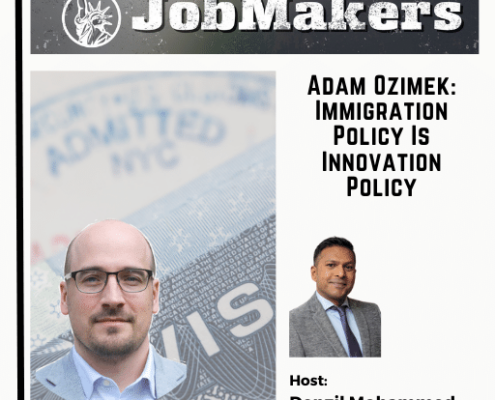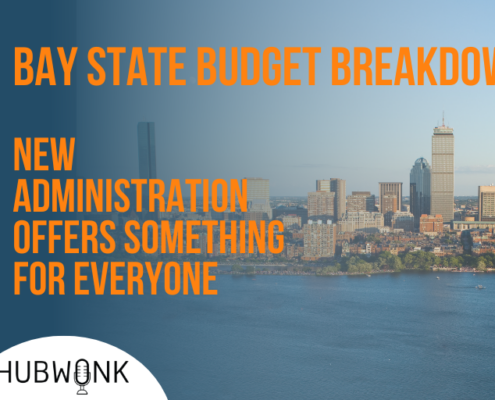Tag Archive for: economics

U.S. Manufacturing Health: Does the U.S. Need an Industrial Policy?
Scott Lincicome from the Cato Institute discusses the U.S. manufacturing industry, international trade, and industrial policy. He dispels the myth of manufacturing decline, highlighting sector evolution and productivity. The conversation moves to industrial policy, emphasizing the need for targeted protection and cautioning against broad subsidization due to potential inefficiencies.

U.K. Cambridge’s Prof. David Abulafia on Oceans, Seas, & Global Trade
This week on The Learning Curve, Professor David Abulafia from Cambridge University discusses the many roles of the world’s oceans in human history and trade. He focuses on how the Pacific, Indian, and Atlantic oceans, along with the Mediterranean Sea, have spurred the rise of civilizations. He concludes with a reading from his book The Boundless Sea: A Human History of the Oceans.

Black Box Budget: Late, Loaded, and Lacking Transparency
Joe Selvaggi talks with Pioneer Institute’s Senior Fellow in Economic Opportunity Eileen McAnneny about the features and flaws of the recently passed 2024 Massachusetts state budget now waiting for Governor Healey’s approval.

Adam Ozimek: Immigration Policy Is Innovation Policy
The United States is built on all kinds of immigrants with all kinds of skills and experiences. While politicians might have us believe immigration is a divisive issue, the fact is Americans across the political spectrum agree at least on this: High-skilled immigrants are good for the country, and we need more of them.

Tilting Offshore Windmills: Speaking Truth to Ratepayers
Joe Selvaggi talks with energy economist Dr. Jonathan Lesser about the chasm between the promises and realities of offshore wind projects, including the likely increased costs passed to electricity consumers and taxpayers.

Rationing Vital Therapies: Should Healthcare Experts Decide Who Lives?
Joe Selvaggi talks with senior health care fellow Dr. William Smith about his new book Rationing Medicine: Threats From European Cost Effectiveness Models to Seniors and Other Vulnerable Populations, and the book’s cautionary warning against embracing European standards for valuing life saving therapies.

Bay State Budget Breakdown: New Administration Offers Something for Everyone
Joe Selvaggi talks with Pioneer Institute's Senior Fellow in Economic Opportunity Eileen McAnneny about the contours of Governor Healey’s $55.5 billion budget and tax relief plan, and whether they serve to make Massachusetts more livable and economically competitive.

Is a Universal Basic Income the Future? You Decide.
With a rising cost of living, higher inflation, and an economy that generates fierce debates about inequality and poverty, many have called for systemic reforms and even more radical changes, including a universal basic income. What is UBI? How does it work? What do researchers think?

New Report: Massachusetts Maintains Reasonable Debt Relative to GSP
0 Comments
/
Massachusetts has more debt than any New England state. Can we afford to pay it off or will we hand it down to future generations?

Invisible Hand Revealed: Economic Lessons in Everyday Life
Hubwonk host Joe Selvaggi talks with Matthew Hennessey, Wall Street Journal editor and author of Visible Hand, A Wealth of Notions on the Miracle of the Market, about how the principles of economics manifest themselves in our every day lives and how we can use that insight to better understand our personal and civic choices.

A Modest Proposal to Raise Federal Revenue
As a way to tackle drug prices, President Joe Biden recently announced that he supports the so-called “inflation rebate,” which would require drug companies to give the federal government any revenue from Medicare drug prices above the general rate of inflation. Senate Finance Committee Chairman Ron Wyden and House Speaker Nancy Pelosi have also publicly endorsed the inflation rebate.

Why Race to the Middle? First-Class State Standards Are Better than Third-Class National Standards
First-Class State Standards Are Better than Third-Class National…
